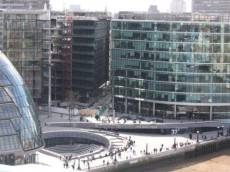April 14, 2014
UK to miss out on overseas public sector procurement growth, warns CBI
 Public procurement of goods and services in twelve key emerging markets will almost triple to £452 billion by 2030, according to new research from the Confederation of British Industry. But the report warns that UK will only capture £11 billion of this growth, if its current market share stays the same so the UK needs to do far more to capture a higher share of the extensive growth in global public procurement in emerging markets. The procurement of goods and services in key emerging markets will soar to £452bn by 2030 as public sector organisations in rapidly developing countries increase their procurement of goods and services, driven by the needs of aging populations and a growing middle class. China will lead the growth in public sector procurement with its market increasing by 7.4 percent each year. Indonesia and Turkey will also rapidly increase their spending by 6.2 percent and 6 percent respectively.
Public procurement of goods and services in twelve key emerging markets will almost triple to £452 billion by 2030, according to new research from the Confederation of British Industry. But the report warns that UK will only capture £11 billion of this growth, if its current market share stays the same so the UK needs to do far more to capture a higher share of the extensive growth in global public procurement in emerging markets. The procurement of goods and services in key emerging markets will soar to £452bn by 2030 as public sector organisations in rapidly developing countries increase their procurement of goods and services, driven by the needs of aging populations and a growing middle class. China will lead the growth in public sector procurement with its market increasing by 7.4 percent each year. Indonesia and Turkey will also rapidly increase their spending by 6.2 percent and 6 percent respectively.





























April 10, 2014
A rail network carrying people on blurred lines into the future of work
by Mark Eltringham • Comment, Flexible working, Technology, Workplace design
More →